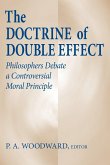In this classic work of philosophy, Asa Mahan examines the doctrine of the will and its implications for moral responsibility. Drawing on the works of influential thinkers such as Augustine and Martin Luther, Mahan provides a deep and insightful analysis of this fundamental philosophical concept. This work has been selected by scholars as being culturally important, and is part of the knowledge base of civilization as we know it. This work is in the "public domain in the United States of America, and possibly other nations. Within the United States, you may freely copy and distribute this work, as no entity (individual or corporate) has a copyright on the body of the work. Scholars believe, and we concur, that this work is important enough to be preserved, reproduced, and made generally available to the public. We appreciate your support of the preservation process, and thank you for being an important part of keeping this knowledge alive and relevant.
Hinweis: Dieser Artikel kann nur an eine deutsche Lieferadresse ausgeliefert werden.
Hinweis: Dieser Artikel kann nur an eine deutsche Lieferadresse ausgeliefert werden.



![The Doctrine of the Human Soul [microform]: Philosophy of a Trinity in Man, and the Phenomena of Death, Philosophically Considered, Showing That Death The Doctrine of the Human Soul [microform]: Philosophy of a Trinity in Man, and the Phenomena of Death, Philosophically Considered, Showing That Death](https://bilder.buecher.de/produkte/64/64531/64531205m.jpg)





